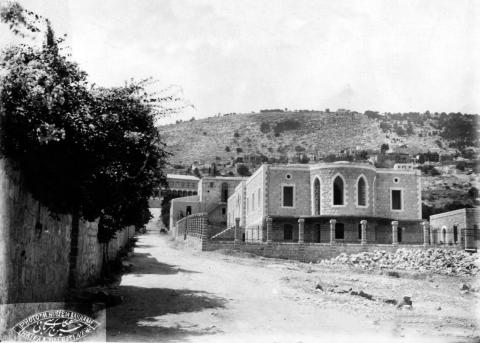Whereas riches may become a mighty barrier between man and God, and rich people are often in great danger of attachment, yet people with small worldly possessions can also become attached to material things. The following Persian story of a king and a dervish illustrates this. Once there was a king who had many spiritual qualities and whose deeds were based on justice and loving-kindness. He often envied the dervish who had renounced the world and appeared to be free from the cares of this material life, for he roamed the country, slept in any place when night fell and chanted the praises of his Lord during the day. He lived in poverty, yet thought he owned the whole world. His only possessions were his clothes and a basket in which he carried the food donated by his well-wishers. The king was attracted to this way of life. Once he invited a well-known dervish to his palace, sat at his feet and begged him for some lessons about detachment. The dervish was delighted with the invitation. He stayed a few days in the palace and whenever the king was free preached the virtues of a mendicant's life to him. At last the king was converted. One day, dressed in the garb of a poor man, he left his palace in the company of the dervish. They had walked together some distance when the dervish realized that he had left his basket behind in the palace. This disturbed him greatly and, informing the king that he could not go without his basket, he begged permission to return for it. But the king admonished him, saying that he himself had left behind his palaces, his wealth and power, whereas the dervish, who had preached for a lifetime the virtues of detachment, had at last been tested and was found to be attached to this world -- his small basket.
Attachment
A rich man and a poor man lived in the same town. One day the poor man said to the rich man, "I want to go to the Holy Land." The rich man replied, "Very good, I will go also," and they started from the town and began their pilgrimage. But night fell and the poor man said, "Let us return to our houses to pass the night." The rich man replied, "We have started for the Holy Land and must not now return." The poor man said, "The Holy Land is a long distance to travel on foot. I have a donkey, I will go and fetch it." "What?" replied the rich man, "are you not ashamed? I leave all my possessions to go on this pilgrimage and you wish to return to get your donkey! I have abandoned with joy my whole fortune. Your whole wealth consists of a donkey and you cannot leave it!" You see that fortune is not necessarily an impediment. The rich man who is thus detached is near to reality. There are many rich people who are severed and many poor who are not.
